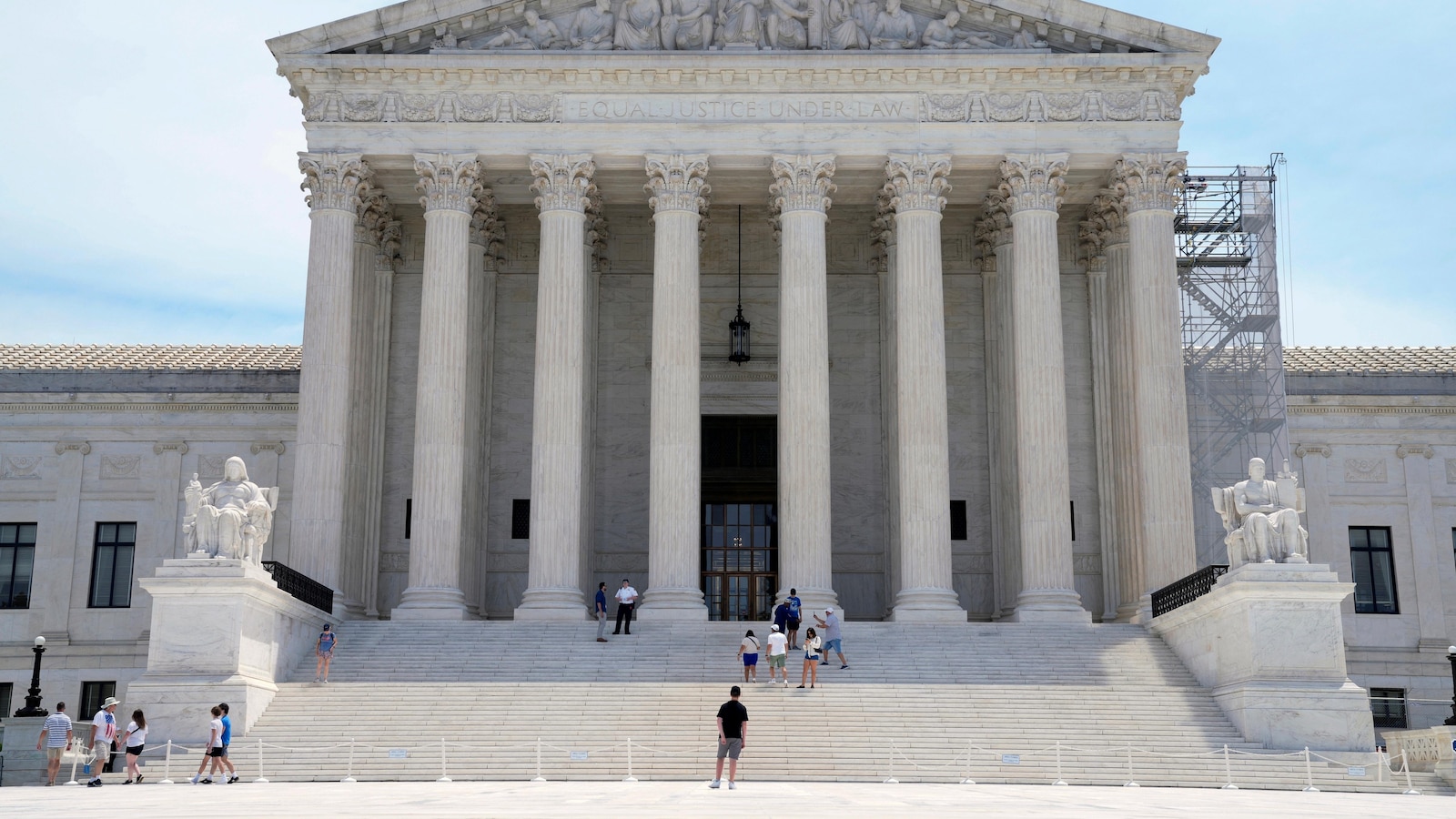[ad_1]
WASHINGTON — WASHINGTON (AP) — The Supreme Court cleared the way Thursday for Idaho hospitals to provide emergency abortions, for now, in a procedural ruling that left key questions unanswered and could mean the issue ends up before the conservative-majority court again soon.
The ruling came a day after an opinion was briefly posted on the court’s website accidentally and quickly taken down, but not before it was obtained by Bloomberg News.
The final opinion appears largely similar to the draft released early. The 6-3 vote reverses the court’s earlier order that had allowed an Idaho abortion ban to go into effect, even in medical emergencies.
The limited ruling sidesteps a ruling that could have taken political center stage in an election year where abortion has been an animating issue. A new poll from The Associated Press-NORC Center for Public Affairs Research found that about 7 in 10 U.S. adults favor protecting access to abortions for patients who are experiencing miscarriages or other pregnancy-related emergencies.
The Biden administration sued Idaho to allow abortions in emergency cases where a woman’s health was at serious risk.
Dismissing the case now makes sense because the contours of the issue have changed in the last several months, Justice Amy Coney Barrett wrote in a concurrence joined by Chief Justice John Roberts and Justice Brett Kavanaugh.
“I am now convinced that these cases are no longer appropriate for early resolution,” Barrett wrote, pointing to revisions Idaho made to its abortion ban and the Biden administration making clear that its arguments were aimed at rare cases.
Justice Ketanji Brown Jackson said the court should decide now, arguing the earlier order meant Idaho doctors were forced to watch as patients suffered or airlifted out of state for care.
“We had ample time to consider this issue,” she said, underscoring her views by reading a summary of her opinion aloud in the courtroom. “Not doing anything is problematic for several reasons.”
Conservative Justice Samuel Alito, who authored the decision overturning Roe v. Wade, also disagreed with the decision to dismiss the case now, though he differed on why. Joined by Justice Neil Gorsuch and Clarence Thomas, he suggested the court should side with Idaho. Federal health care law “conclusively shows that it does not require hospitals to perform abortions,” he wrote.
The majority decision to dismiss the case means the issues at the heart of it remain unresolved and the same justices who voted to overturn the constitutional right to abortion could soon be again considering when doctors can provide abortion in medical emergencies.
The premature release marked the second time in two years that an abortion ruling went out early, though in slightly different circumstances. The court’s seismic ruling ending the constitutional right to abortion was leaked to Politico.
The ruling came in a case filed against Idaho by the Biden administration, which argued that doctors must be allowed to provide emergency abortions under a federal law when a pregnant woman faces serious health risks.
Democratic President Joe Biden said the court’s order ensures that Idaho women can get the care they need while the case continues to play out.
“Doctors should be able to practice medicine. Patients should be able to get the care they need,” he said.
Idaho had pushed back, arguing that its law does provide an exception to save the life of a pregnant patient and federal law doesn’t require expanded exceptions.
Doctors in Idaho said that the law wasn’t clear on when they could provide abortions in emergencies, forcing them to airlift pregnant women to other states for emergency care on several occasions since the high court had allowed the ban to go into effect in January.
The justices found that the court should not have gotten involved in the case so quickly, and majority reinstated a lower court order that had allowed hospitals in the state to perform emergency abortions to protect a pregnant patient’s health.
The opinion means the Idaho case will continue to play out in lower courts, and could end up before the Supreme Court again. It doesn’t answer key questions about whether doctors can provide emergency abortions elsewhere, a pressing issue as most Republican-controlled states have moved to restrict the procedure in the two years since the high court overturned Roe v. Wade.
In a similar case, the state of Texas also argued that federal health care law does not trump a state ban on abortion and the New Orleans-based 5th U.S. Circuit Court of Appeals sided with the state.
The Idaho ruling doesn’t appear to affect that finding. The Biden administration has appealed the case in Texas, leaving another avenue for the issue to appear before the high court. The justices are unlikely to even consider whether to take up the Texas case before the fall.
___
Follow the AP’s coverage of the U.S. Supreme Court at https://apnews.com/hub/us-supreme-court.



